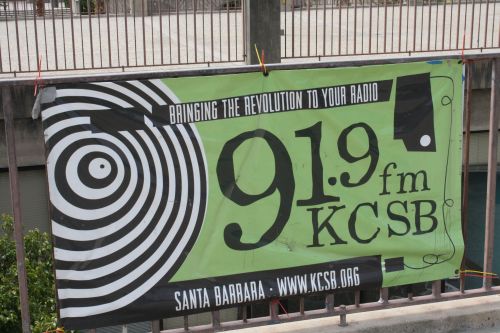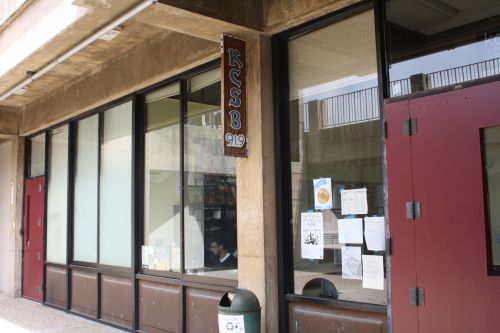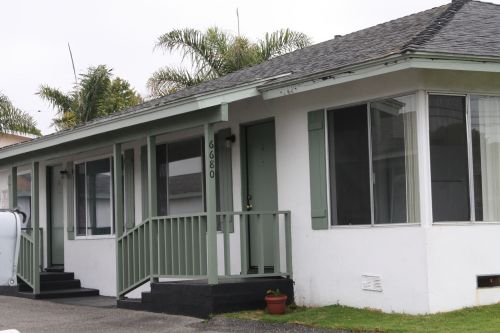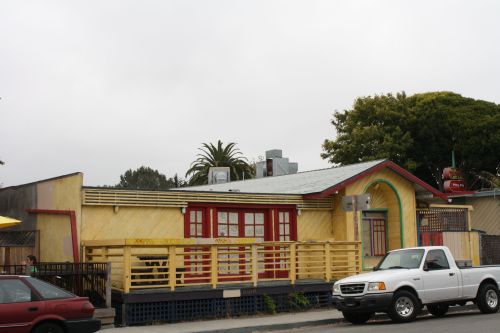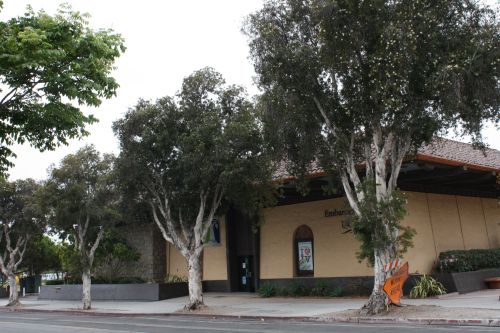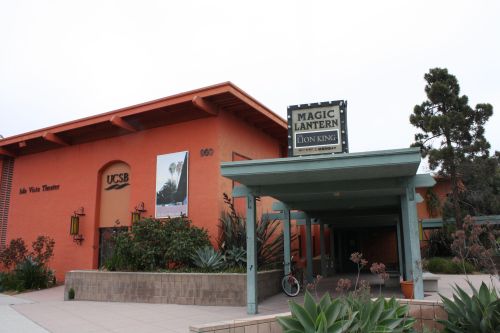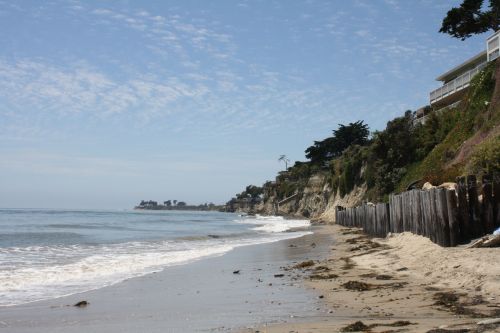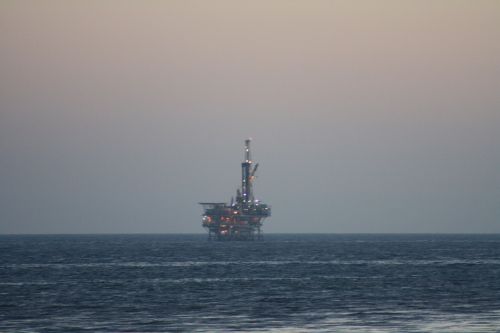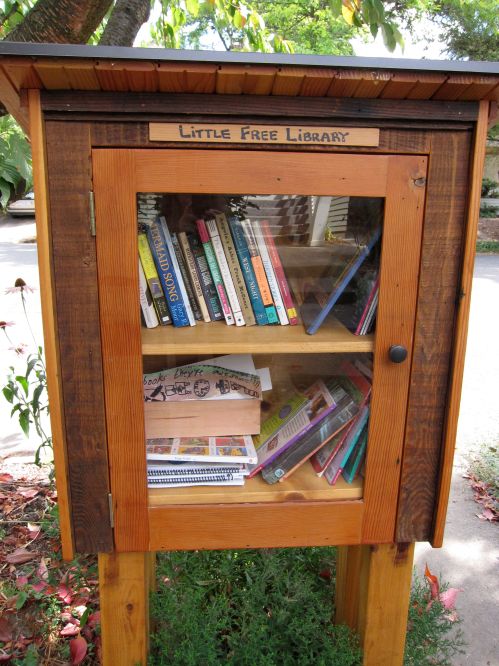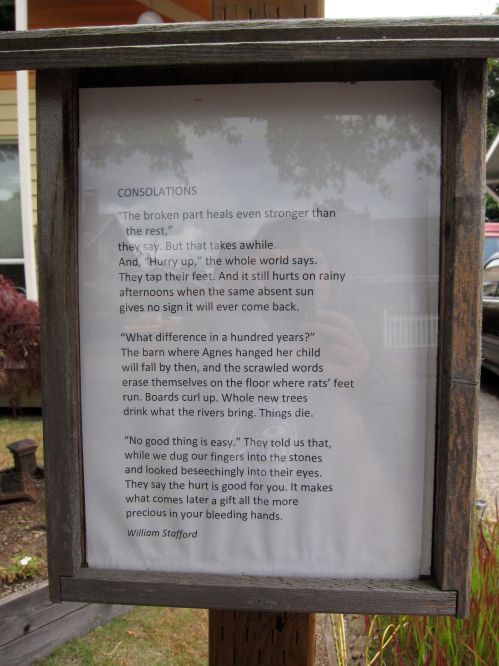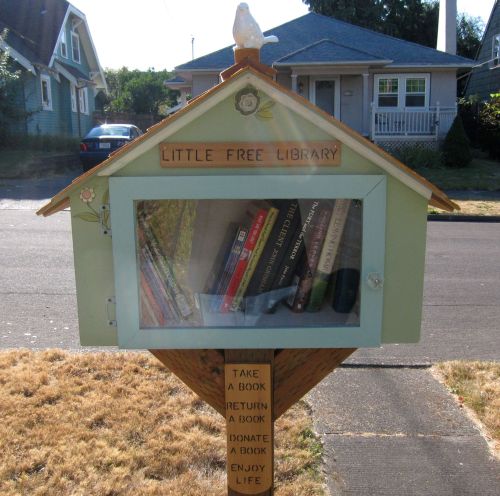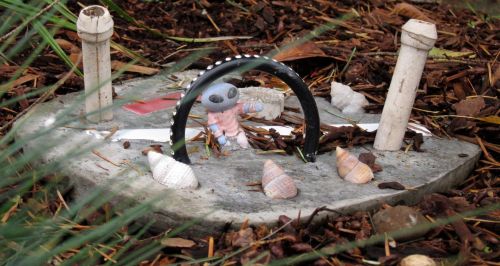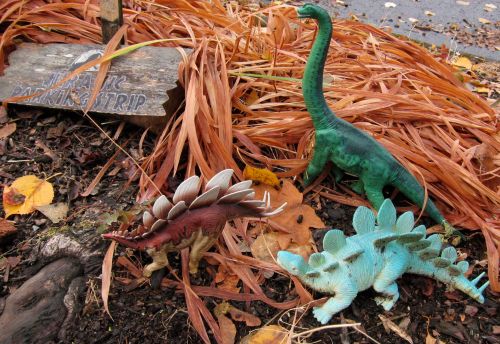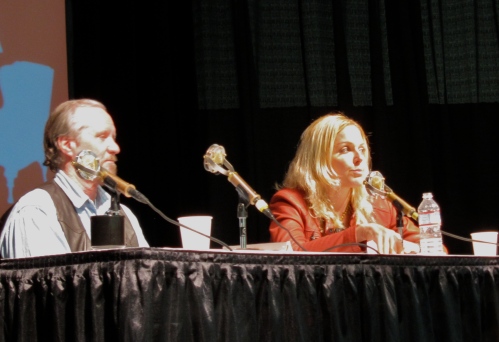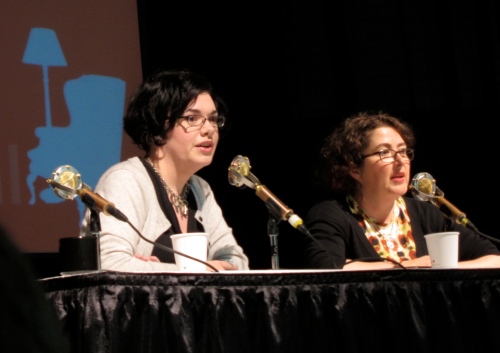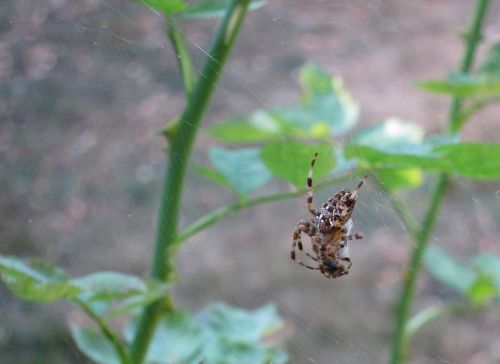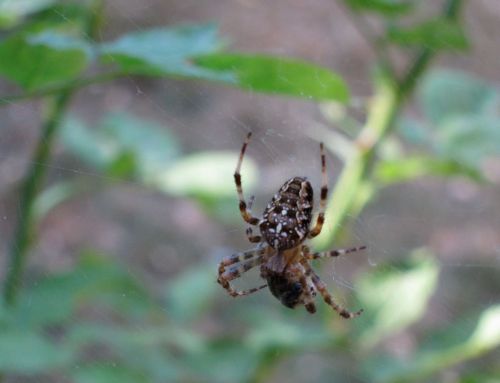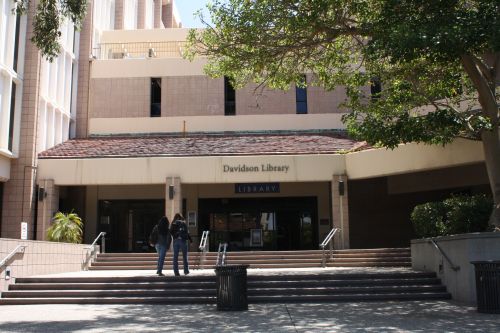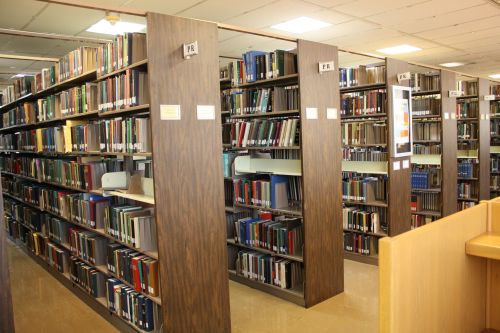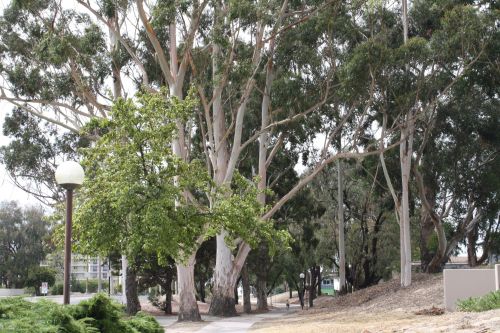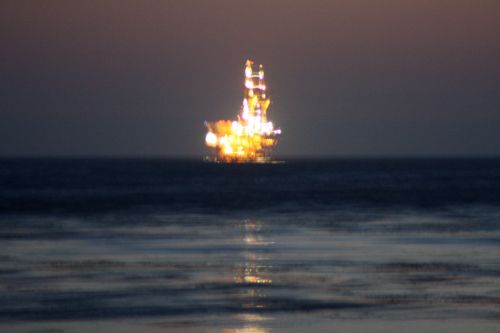Driving up and down Oregon is something I have done a lot, but never during a winter storm. My 91-year-old mother was ailing and on hospice care. It would be only a matter of time, so I packed, got the car serviced, and headed south toward California on a Thursday morning. The December weather was worrisome. Rain poured down in a deluge and it was hard to see the road, making for slow driving, but lots of other cars were traveling south as well, cars with Oregon plates, and I found this very encouraging. I had already read online that the Siskiyou Pass on I-5 was very hazardous and icy, so I thought I’d cut across to Florence and take the coast route instead, but that road turned out to be closed. I found out later that there’d been a landslide. That left driving to Grant’s Pass and taking Highway 199 to Crescent City.
Rain turned to heavy snow south of Roseburg, but the big, fat flakes weren’t sticking to the pavement yet. There are several summits between Roseburg and Grant’s Pass, and the first one, Canyon Creek, was okay. This was the highest one, so I figured I’d make it to Grant’s Pass before snow covered the road, but at the bottom, traffic came to a halt. For three hours. Cars were backed up ahead of me as far as I could see, and they backed up behind me for ten miles at least. And there we sat. All that time, snow continued to fall, making it less and less likely I’d be able to get to Grant’s Pass. I used up a quarter tank of gas keeping the car idling and the heater on low.
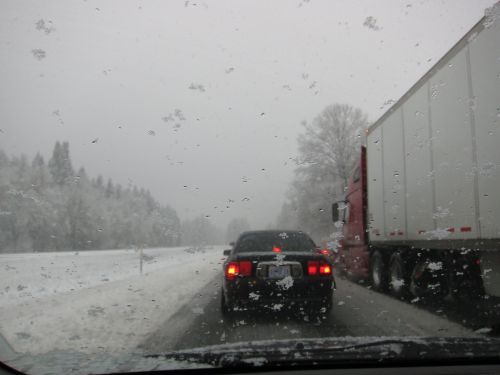
At times like this, driving alone becomes very lonely. I wished I had someone with me in the car. The woman in the black Lincoln ahead of me kept getting out to look around. She was wearing what looked like pajama pants with sock monkeys all over them.
I texted my daughter, Eithne, and she went online to find out what had happened. She texted me back that I-5 was closed. I wondered how long we’d be stranded. I got out a couple of times myself; the snow on the road was slippery. Somebody said there’d been an accident ahead at Wolf Creek which had closed the freeway. Eithne kept checking back. My sister, Carolyn, sent prayers, and after three hours, we began to move forward at a crawl to a spot where a man from ODOT gave us instructions, one car at a time. We were being sent back to Roseburg. He told me to get off at the next exit, which had been plowed, and get back on the freeway going north. They had plowed one lane of the Canyon Creek Pass, so we were able to get through. A lot of snow had accumulated during those three hours.
It was beautiful, like a Christmas card with all the tall firs and spruces covered with snow. Waterfalls cascaded down the banks bordering the freeway. The rivers raged wild, the water dark and cold.
Southbound cars and trucks on the other side of the freeway were backed up for miles. Eithne called to tell me she’d booked me a room at the Super 8 in Roseburg. I was glad she did; the “No Vacancy” sign went up right after I got there.
I was exhausted. I thought I’d have to postpone my trip and return to Portland the next day. Chains were now required on all the passes, and I am not a confident snow driver. “At least I tried,” I told myself.
Friday morning, I kept checking road conditions. By 10 a.m., the situation had improved, and I drove to Grant’s Pass. Going over the passes was a bit iffy, but I made it through. The streets were plowed in Grant’s Pass, and I headed on down Highway 199, a winding corkscrew, towards California. Plows had been through, and snow was piled up on the road shoulders—no place to pull over. Gas stations looked like you’d get stuck in them and not be able to get out. Snow had cleared by the time I got to the end of 199 and merged onto 101.
I stopped in Crescent City for clam chowder. I texted Carolyn, who was, I think, much relieved. She gave me the number of the Super 8 in Fortuna, a couple of hours south.
The motel was across the street from the Eel River Brewing Co., where I had supper—Greek salad and an excellent dark beer. A guy at the next table saw me using my Mac and asked if I write. He told me he’s writing a Sci-Fi novel and is about halfway through. He was about my age, all gray hair. So cool… a writer in Fortuna!
The drive through the redwood forests and green hills of Northern California was gorgeous—so green it was almost neon. Winter driving has its problems, but the beauty made up for it all. It was Saturday evening when I pulled my car into Mother’s driveway.
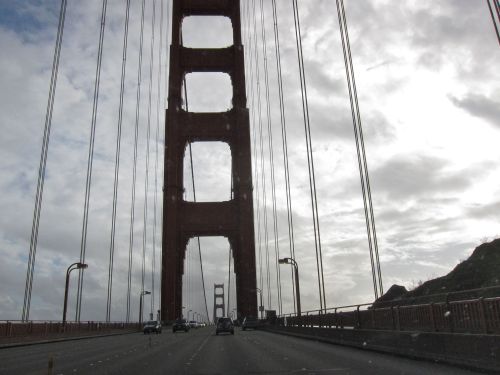
San Francisco, Golden Gate Bridge
The furniture in Mother’s bedroom had been shoved aside to make room for the hospital bed, oxygen unit, commode, and boxes and trays of supplies. Mary Ann, the nurse’s aide, sat in the corner by the window.
Seeing Mother was a shock. Always slender at about 130, she was down to 91 pounds and looked like a skeleton in the hospital bed. She looked like she’d been in a concentration camp. I told her I’d come all the way from Portland to see her. “I know who you are,” she said. I don’t think she knew me after that.
That was the start of a week-long vigil from which I still haven’t recovered.
Mother’s condition deteriorated a bit more each day. In the corner, 24 hours a day, sat the CNA caregiver. Mary Lou was there the day I came; the next day it was Rita. Both of them were wonderful. I didn’t get to know the night shift nurses as well.
The bedroom across the hall from Mother’s room had been turned into a TV room—really a junk depository—but the sofa pulled out into a bed, and that’s where I slept.
Besides me, the people in the house were Mother in the hospital bed, the CNA nurse on shift, my niece Andrea, and Yvonne, Mother’s companion/caregiver before she took a turn for the worse. Yvonne was in the process of sorting through her belongings and preparing to move out. My other niece, Jennifer, was in and out, as were my sisters, Carolyn and Rosemary.
Out in the orchard a solitary buck with a fine rack of antlers was eating fallen apples and standing on his hind legs to pick ones that were still on the tree. He was there most mornings. There were rabbits in the yard, too.
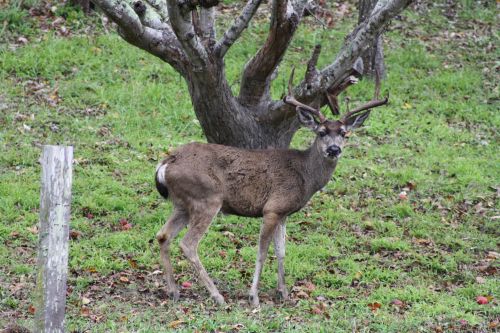
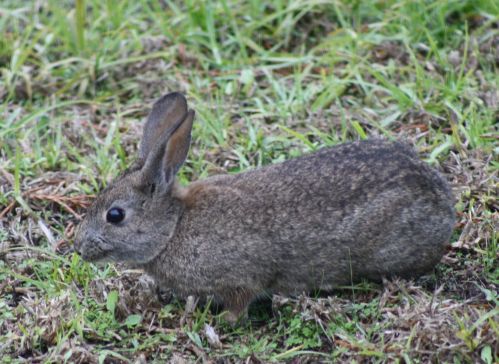
On Christmas, Mother seemed to revive a bit. She was feeding herself, holding a grape and taking small bites. A book the Hospice nurse gave us said people will often rally before the end, and that was the last time Mother ate or drank. The next morning, Rita said she could no longer swallow; “Her condition has changed.”
After that, Mother was unconscious most of the time. The nurses had little moist sponges on a stick to swab out the patient’s mouth and keep it moist. Mother was even choking on those. There were long gaps between breaths, at irregular intervals. She was on oxygen all the time now, lying there semi-comatose, getting morphine at regular intervals. The nurses had seen it so much, they could say, “It won’t be tonight.” They told us it is painful to die because of the circulation shutting down, and the morphine kept her from having any pain. Mother’s hands were getting bluish and cyanotic. The night nurse, Rosa, said, “She won’t wake up again.”
We all kept going in and watching her breathe. Every time there was a long pause, we’d think she was gone, but then she’d start again.
Saturday, December 29, we wandered in and out. Mother had not eaten or drunk any fluids since Tuesday. Mary Lou said when people are about to die, there is an odor, and she was smelling it now. She said it was a spicy odor. I didn’t notice it, being there all the time, but I noticed it afterwards, and it seemed to increase even after she was gone. Mary Lou said Mother was waiting for Eithne, her other granddaughter, to come. I told Mother Eithne was coming; not that she appeared to hear me, but the hospice booklet and information I had read online said hearing is the last sense to go. It lasts until the end, so keep talking to the person. Eithne did arrive that afternoon. She said Mother responded when she touched her and spoke to her. The rest of us thought she was in a coma and perhaps no longer here at that point, so maybe she was waiting for Eithne.
We all went out to dinner at a restaurant just a mile down Carmel Valley Road. We came right back and sat in the room with Mother. We talked about movies and joked about an actor with the nicknames “Captain Tightpants” and “Captain No Pants” after a scene showing full posterior nudity. Andrea called him “Captain McBooty Buns.” We were all laughing when it happened. Mother stopped breathing. We crowded around the bed.
The nurse, Sylvia, said “It is done.” She made phone calls. Her employer told her to leave. She told me that Mother had tried to die while we were out having dinner, but then she held on and started breathing again. She waited for us to come back and felt that at last she could go when her children were all around her in the room, laughing.
What a beautiful, beautiful thing to say.





